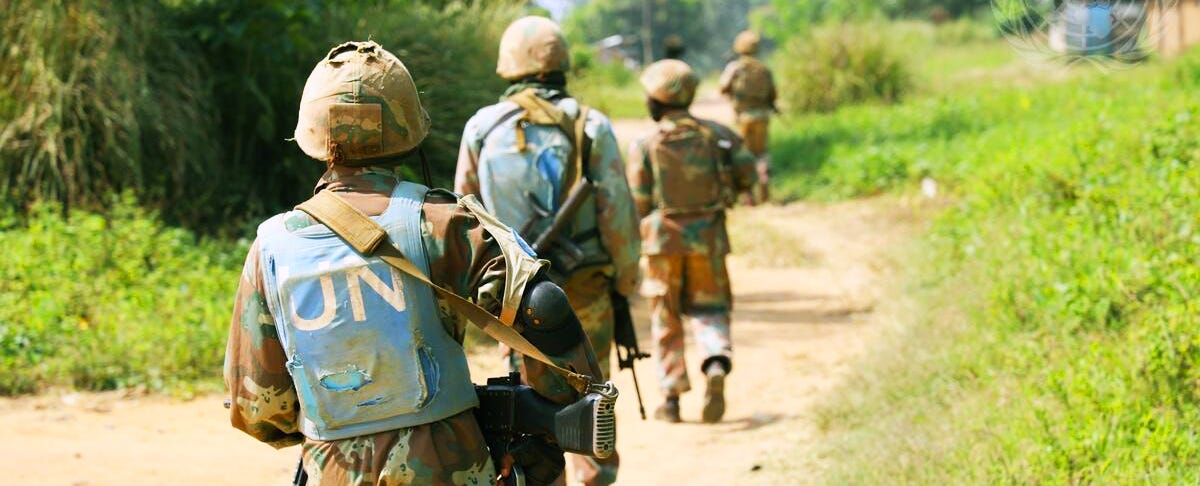Congo’s War Isn’t A Tragedy, It’s An Industry
The world’s most profitable crisis.
War is generally bad for business. Unless, of course, said business depends on war.
Consider the Democratic Republic of the Congo. By all measures, it should be one of the wealthiest countries on the planet. How could you be poor sitting on $24 trillion in mineral wealth? After all, these are the very minerals used in everything from iPhones to Teslas and solar panels. Yet somehow, Congo remains one of the greatest failed states of modern times.
Planning a once-in-a-lifetime adventure to see silverback mountain gorillas and live out your Tarzan dreams? Think again. But don’t take it from me, just ask Wikitravel: “It is best advised not to visit Goma or D.R. Congo as a whole if you want to return home in peace and not in pieces.”
Coincidence? I think not.
Congo’s war isn’t just a humanitarian tragedy, it’s a systematically structured economic engine. A system where instability isn’t a failure of governance, it’s a profit-making machine. A system where warlords, corrupt government leaders, and multinational corporations cash in on chaos, while the world shrugs its shoulders and moves on.
This isn't a crisis that’s 'too complex to solve', it's a meticulously orchestrated scheme.
The Players in the Congo Casino
The game is simple. Instability drives cash flow: Keep Congo unstable, and the money keeps flowing. While millions suffer, the players at the table laugh their way to the bank.
The Smuggling Kingpin: Rwanda
Rwanda has carefully crafted its reputation as one of Africa’s economic miracles. But dig deeper and read the fine print on its exports: Made in Congo.
Gold? Rwanda barely has any. Yet it somehow exports $885 million worth every year, an estimated 65.6% of its exports.
Coltan? Cobalt? Same story. All sourced from Rwanda’s gigantic neighbour, Congo, a country 89 times larger. How do they do it? Smuggling, supported by Rwandan military incursions disguised as ‘homeland protection’. And if that’s not enough, ever heard of the M23 rebel group? Think less guerrilla warfare militia and more Rwanda’s invisible hand tightening its grip on Eastern DR Congo.
Uganda plays the same game – robbing Congo blind while foreign governments and intergovernmental organizations conveniently look the other way.
Profiting from Plunder, Pretending to Care: The Corporate Brokers
The minerals looted from Congo don’t vanish into thin air. They end up in the products you and I use every day: smartphones, laptops, and nearly anything across the global tech supply chain.
Tech giants love to advertise their use of ‘conflict-free minerals’. The reality? You’d have better luck spotting a unicorn. As long as supply chains stay murky, corporations will quietly profit, willfully blind to the blood-soaked minerals they buy.
Congo’s war fuels cheap production. And when violence disrupts mining? The world doesn’t mourn the casualties; it worries about rising prices of raw materials.
The Silent Sponsors: Governments and ‘Peacekeepers’
In a conflict that has left millions dead and millions more displaced over multiple decades, you’d think this would get some serious global intervention. You’d be wrong.
The UN? Billions spent on peacekeeping, but nothing to show for it. 26 years of UN peacekeeping presence in Congo, and still peace remains the one thing no one can seem to find.
The U.S. and Europe? They sanction warlords when it’s convenient, but firmly stand by Rwanda’s president, Paul Kagame — the mastermind behind the region’s greatest looting operation. Leveraging a string of high-profile sports deals and Rwanda’s carefully curated image as a trusted Western ally, he's perfected the art of diverting global scrutiny from Africa’s latest mafia state.
Sanctions for Russia, business as usual for Rwanda. In fact, why not even pay Rwanda to take your asylum seekers while you’re at it? Funny how that works.
Congo’s war isn’t overlooked because it’s a mystery. It’s overlooked because it’s a goldmine.
The Never-Ending War
A Congo with stability and peace? That’s a nightmare for too many people. It was a nightmare in 1961 when the CIA commissioned the assassination of independence leader and pan-Africanist Patrice Lumumba, and it’s still a nightmare today.
Rwanda’s economy depends on stolen minerals. Remember that smuggling business fuelling its growth? That dies the minute Congo gets a grip on its issues.
The 120+ militias, warlords, and armed groups in Eastern DR Congo survive on chaos. No war means no power, no revenue, no leverage. Their very existence requires this war to continue.
Global corporations thrive on cheap, unregulated minerals. Congo’s conflict has kept prices low and supply steadily flowing — an economist’s dream. If it isn’t broken, why fix it?
The world has failed Congo, turning a blind eye, pretending this is just a local crisis in some forgotten corner of Africa. Because peace isn’t profitable, and those in power know it.
The Bottom Line
Congo is at war and has been for the better part of its post-colonial history. But forget tribalism, political backwardness, or bad luck.
This is strictly business. Extraction at gunpoint, robbing 105 million people of their future.
Congo’s humanitarian tragedy is an industry, and business is booming.





While it’s true that foreign governments, corporations, and international bodies benefit from Congo’s instability, we also have to consider the role of Congolese leadership and local actors. Corruption within the government, warlords profiting from illicit trade, and even some community-level enablers all play a part in sustaining this cycle. If we frame Congo purely as a victim of outside forces, we risk overlooking the internal power struggles and missed opportunities for reform.